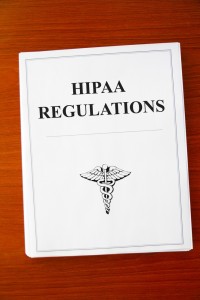HIPAA Privacy Rules Amended
 “Too many communities across the country are still suffering from the heartbreaking consequences of a gun in the wrong hand. In the past decade, more than 100,000 people have died as a result of gun violence. Many of these crimes were committed by people who never should have been able to purchase a gun in the first place.” With those words, President Obama introduced a roster of executive actions aimed at diminishing gun violence, a move motivated by a rash of incidents, most recently in San Bernardino.
“Too many communities across the country are still suffering from the heartbreaking consequences of a gun in the wrong hand. In the past decade, more than 100,000 people have died as a result of gun violence. Many of these crimes were committed by people who never should have been able to purchase a gun in the first place.” With those words, President Obama introduced a roster of executive actions aimed at diminishing gun violence, a move motivated by a rash of incidents, most recently in San Bernardino.
The President’s action has moved the Department of Heath and Human Services’ Office for Civil Rights (HHS) to amend their HIPAA Privacy Rules; with the new guidelines affording mental health care providers the right to share data with the National Instant Criminal Background Check System (NICS) . NICS is an FBI agency that exists to perform background checks on prospective gun owners who may have a legally disqualifying prohibitor, including those addicted to controlled substances, convicted of a serious crime, subjects who have been committed to a mental institution, or renounced their U.S. Citizenship; among others.
Mental health providers will be barred from sharing diagnostic or clinical medical records; but will be empowered to identify subjects with disqualifying prohibitors that would prevent them from shipping, transporting or possessing any firearm. The NICS record will include name, date of birth, sex and a code that identifies the prohibitor.
The move is part of an overall initiative presented by Mr. Obama which also includes revamping the background check system; applying checks and licenses for sales both at gun shows and on the web; expanding available mental health treatment, and encouraging Homeland Security to sponsor research into innovative gun safety technologies.
Amid controversy, HHS maintains that serious measures have been taken to avoid any procedural change that would compromise physician–patient confidentiality and discourage individuals from voluntarily seeking mental health treatment if they need it.
